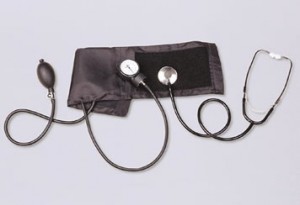Published: January 13, 2010
Psychologists will share the success of their ground-breaking back-to-work programme for the long term unemployed, Skills4Success, today, 13th January 2010, at the British Psychological Society’s Division of Occupational Psychology Annual Conference in Brighton
Chartered Psychologist Nancy Doyle will present the results and techniques used in the Skills4Success programme, which uses the latest psychological techniques to help its unemployed participants take control of their careers and acquire gainful employment.. [continue reading…]
Published: January 12, 2010
 Older women with hypertension are at increased risk for developing brain lesions that cause dementia later in life, according to data from the Women’s Health Initiative Memory Study (WHIMS). The findings were published in the December 2009 online issue of the Journal of Clinical Hypertension
Older women with hypertension are at increased risk for developing brain lesions that cause dementia later in life, according to data from the Women’s Health Initiative Memory Study (WHIMS). The findings were published in the December 2009 online issue of the Journal of Clinical Hypertension
The research was conducted as part of the Women’s Health Initiative (WHI), the largest multi-site longitudinal study looking at health risks among postmenopausal women. WHIMS, which involves a subgroup of the women enrolled in WHI, looks at the influence of hormone therapy on thinking and memory. All the women in WHIMS were 65 or older. [continue reading…]
Published: January 12, 2010
 The millions of people who spend hours every day on a cell phone, may have a new excuse for yakking. A surprising new study in mice provides the first evidence that long-term exposure to electromagnetic waves associated with cell phone use may actually protect against, and even reverse, Alzheimer’s disease. The study, led by University of South Florida researchers at the Florida Alzheimer’s Disease Research Center (ADRC), was published today in the Journal of Alzheimer’s Disease. [continue reading…]
The millions of people who spend hours every day on a cell phone, may have a new excuse for yakking. A surprising new study in mice provides the first evidence that long-term exposure to electromagnetic waves associated with cell phone use may actually protect against, and even reverse, Alzheimer’s disease. The study, led by University of South Florida researchers at the Florida Alzheimer’s Disease Research Center (ADRC), was published today in the Journal of Alzheimer’s Disease. [continue reading…]
Published: January 12, 2010
Current Alzheimer’s disease (AD) research indicates that accumulation of amyloid-beta (Aβ) protein plaques in the brain is central to the development of AD. Unfortunately, presence of these plaques is typically confirmed only at autopsy. In a special issue of the journal Behavioural Neurology, researchers review the evidence that Positron Emission Tomography (PET) can image these plaques during life. This exciting new technique provides researchers with an opportunity to test the amyloid hypothesis as it occurs in living patients. [continue reading…]

 The millions of people who spend hours every day on a cell phone, may have a new excuse for yakking. A surprising new study in mice provides the first evidence that long-term exposure to electromagnetic waves associated with cell phone use may actually protect against, and even reverse, Alzheimer’s disease. The study, led by University of South Florida researchers at the Florida Alzheimer’s Disease Research Center (ADRC), was published today in the Journal of Alzheimer’s Disease.
The millions of people who spend hours every day on a cell phone, may have a new excuse for yakking. A surprising new study in mice provides the first evidence that long-term exposure to electromagnetic waves associated with cell phone use may actually protect against, and even reverse, Alzheimer’s disease. The study, led by University of South Florida researchers at the Florida Alzheimer’s Disease Research Center (ADRC), was published today in the Journal of Alzheimer’s Disease. 